Search Results
Showing results 541 to 560 of 665
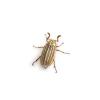
Shake a Shrub
Source Institutions
This is an activity where learners will discover what types and how many insects live in their own backyard.
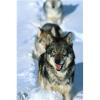
Find Your Pack
Source Institutions
This activity introduces learners to wolf behavior and communication.
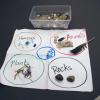
Beach Buckets
Source Institutions
In this activity, learners explore a bucket of sand and beach objects.
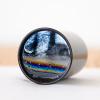
Soap Film on a Can
Source Institutions
The beautiful iridescent colors of a bubble in a can! With this Exploratorium Science Snack, create beautiful soap films on the open end of a can to see beautiful rainbows of color.
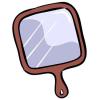
Mirror, Mirror on the Wall: Angles of Reflection
Source Institutions
In this optics activity, learners work in pairs to explore how mirrors work. Learners use tape to mark the angles needed to see each other's reflection in a wall mirror.
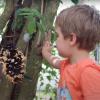
Discovery Time: Birds
Source Institutions
In this activity, young learners, (2 years and up) explore bird behavior and adaptations by providing a homemade bird feeder and observing birds.
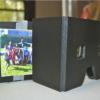
Stereoscope
Source Institutions
In this activity, learners construct a device that allows them to view 2-D images in 3-D.
Hexagon Hunt
Source Institutions
This activity gets learners looking at 6-sided shapes in nature, including the cells of a beehive, as well as other shapes.
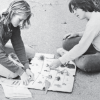
Plant Hunt
Source Institutions
In this outdoor activity and game, learners collect and sort leaf samples to determine how many types of plants grow in the activity site.
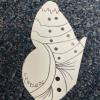
Butterfly Life Cycle
Source Institutions
In this activity, learners will explore the insect life cycle by making a model.
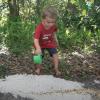
Discovery Time: Tracks
Source Institutions
In this activity, young learners, (2 years and up) explore animal behavior and adaptations by providing a "track trap" and observing the signs animals leave behind.
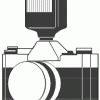
First Impressions
Source Institutions
Learners experiment with a commercial photo-sensitive paper (Sunprint® or NaturePrint® paper). They place opaque and clear objects on the paper and expose it to bright light, observing the results.
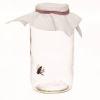
Temperature Time Warp
Source Institutions
In this activity, learners explore the behavior of cold-blooded animals. Learners discover what happens when they change a fly's temperature.
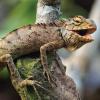
Adaption Artistry
Source Institutions
In this creativity-based activity, learners imagine what the Earth will look like in the near and distant future, then design their own future habitat and creatures that may live there.
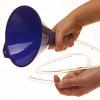
Listen to THIS!
Source Institutions
In this activity, learners use plastic tubing and a funnel to listen to their heart. Learners also discover that if they run around, their heart pumps harder and faster, making it easier to hear.
Pesticide Watch Card
Source Institutions
After learning that some of the chemicals we add to food crops may have harmful consequences on our health and the health of the environment, learners will create a pocket-sized card with their favori
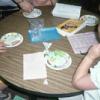
Plant Parts and Their Diseases
Source Institutions
This exercise is designed to teach young learners the different parts of a plant (root, stems, leaves, flowers, fruit, and seeds), the basic functions of each part, and to show that tiny microscopic o

Your Sense of Taste: Discover the real taste of candy
Source Institutions
Your tongue can sense about 6 different flavors (salty, sweet, bitter, sour, umami/savory, and fat), but your nose provides a lot more "taste" information than you realize when you eat.
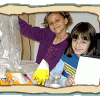
If Trash Could Talk
Source Institutions
Ancient trash tells archaeologists a lot about the past. In this activity, learners take a close look inside their trash can and think about the clues it offers about their lives.
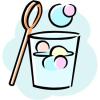
Why Are Bubbles So Colorful?
Source Institutions
In this activity, learners explore why they can see colors in bubbles and why they change.
